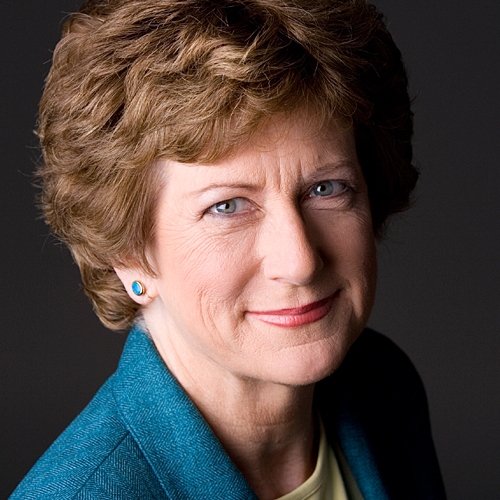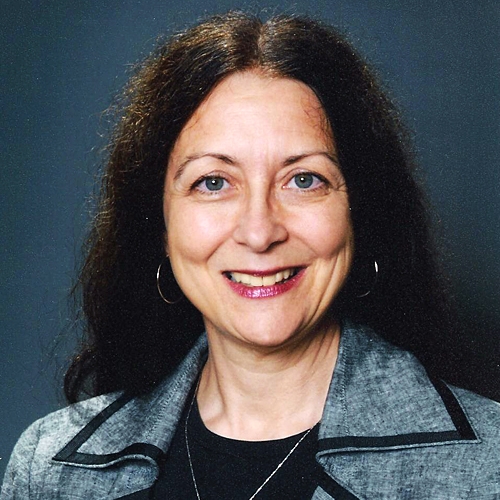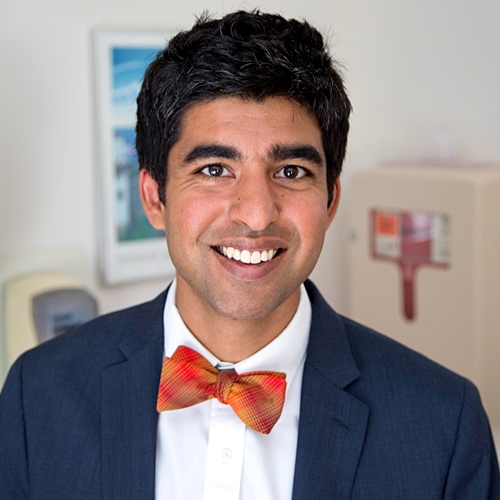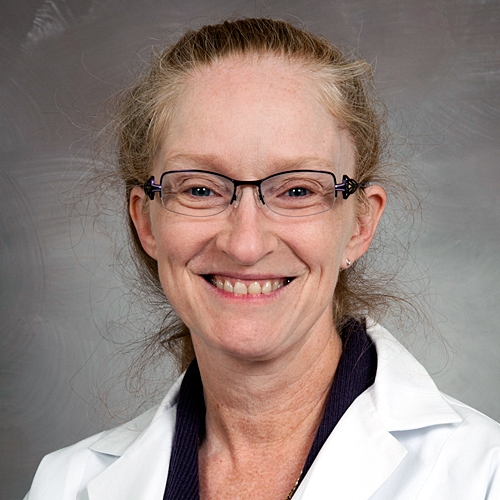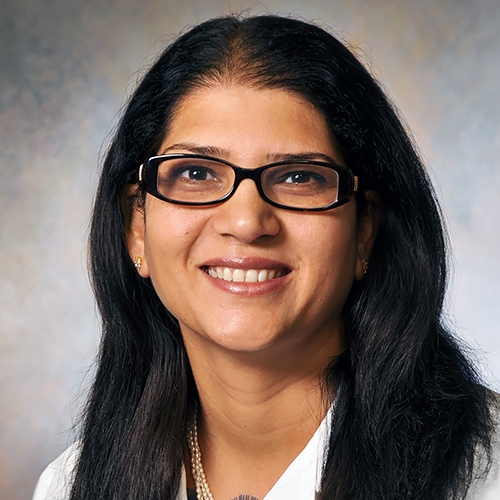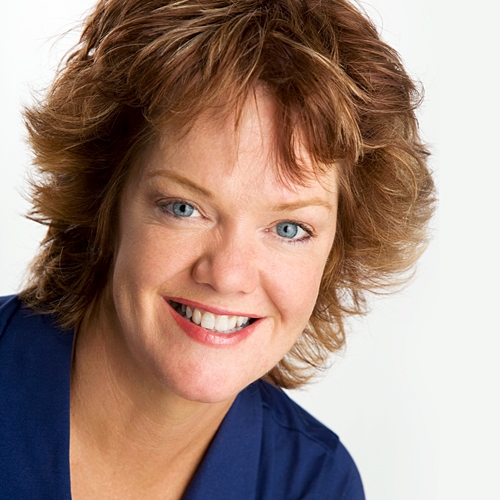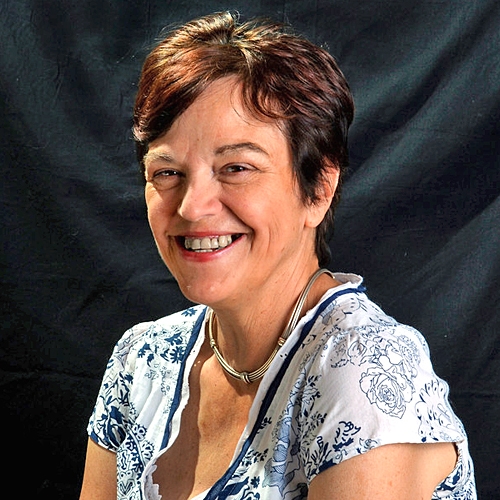 2019 Speakers & Topics
2019 Speakers & Topics
Andrew Shennan is Professor of Obstetrics at King’s College London, based at St. Thomas’ Hospital and is Clinical Director of South London Clinical Research Network. He sits on the UK HTA commissioning board.
He specialises in clinical trials in antenatal and intrapartum care. His research interests include interventions to predict and prevent preterm birth, pre-eclampsia, global health and the use of blood pressure monitoring. He has published over 500 peer reviewed research reports (H index >45 RG score >50). Current research funding as applicant/co applicant is £32 million in 17 grants.
He has an active clinical role in managing high risk obstetric patients, including a regular hands-on labour ward commitment, and a specialist preterm birth surveillance clinic (award winning 2013/2015/2016 innovations prize) that accepts national and international referrals. He is the recipient of the international 2017 Newton Prize (£200,000) for excellence in research and innovation in support of economic development and social welfare in low and middle-income countries. He was awarded an OBE in 2018 for services to maternity care.
The management of pre-eclampsia is based around accurate detection of risk, targetting of prophylactic therapies and then prompt intervention. Most deaths occur in low and middle income countries, but when well mananged maternal deaths are very rare. The judicous use of prophylactic aspirin, and the subsequent detection of those at risk are key to success. This allows timely delivery while managing women in a safe environment with prompt access to anti hypertensive medication and anticonvulsants such as Magnesium Sulphate. This talk will discuss the evidence base around new angiogenic markers to identify risk, the use of aspirin and the need for effective monitoring in a global setting. The role of early delivery will also be elucidated.
Dr. Anita L. Nelson is currently Professor and Chair, Obstetrics and Gynecology Western University Health Sciences; Professor Emeritus, Obstetrics and Gynecology at David Geffen School of Medicine at UCLA; Clinical Professor Obstetrics and Gynecology at Keck School of Medicine of USC; and Medical Director of the Research Division of Essential Access Health. Her research includes contraception, abnormal bleeding, gynecologic infection and menopause. She has authored over 200 articles for professional journals and over 70 chapters and several books, including being a senior author of Contraceptive Technology. She has conducted over $60 million of research in women’s care for NIH, Gates Foundation and pharmaceutical companies.
The postpartum period has now been recognized as the fourth stage of labor with immediate and longer-term issues. Major changes have been made in both the timing and content of postpartum care. One of the most notable changes is the growing practice of initiating contraception (especially IUDs, implants and injections) prior to discharging the new mother home. These practices have recognized evidence supporting their safety, even in women who plan to exclusively breastfeed (US MEC, SPR, etc.) and in many states, funding is available through Medicaid programs. This presentation will summarize these new best practices and discuss the impacts they may have on the content of prenatal care too.
Dr. David Abel is a perinatologist that serves an underserved population in the central and southern San Joaquin Valley of California. I have a passion for education, and teach regularly at the annual American College of Ob/Gyn meeting as well as other venues. He is actively involved in teaching medical students, residents and maternal-fetal medicine fellows at the University of California San Francisco. In addition, he is chairperson of the Society of Maternal-Fetal Medicine's Education Committee, ultrasound subcommittee.
He earned his medical degree from the State University of New York Health Sciences Center. He then went on to complete residency in Obstetrics and Gynecology at Maine Medical Center. His fellowship in Maternal-Fetal Medicine was completed at Duke University Medical Center.
His interests include prenatal diagnosis/genetics, ultrasound, fetal echocardiography, preconception counseling, cardiac disease during pregnancy, maternal mortality and anticoagulation in pregnancy.
He is a fellow of both the American College of Obstetricians and Gynecologists and the Society for Maternal-Fetal Medicine and a chairperson of the Society of Maternal-Fetal Medicine Education Committee, Ultrasound Section.
His hobbies include making jam, collecting rock music criticism books and hiking in the desert.
Cardiovascular disease is the leading cause of maternal mortality in the United States. For clinicians caring for women of reproductive age, it is important to become familiar with the physiologic changes during pregnancy and how they can potentially worsen certain cardiac conditions. In many cases, providers are not aware of a patient’s condition, or incorrectly assume there are no residual deficits. For those that do not care for pregnant women, having a working knowledge of this topic is necessary to optimize pregnancy outcomes, as there are opportunities for assessment and management prior to conception. This discussion will focus on the physiologic changes during pregnancy and the potential impact on those with cardiac disease, and highlight important points with respect to specific cardiac lesions as it pertains to management prior to and during pregnancy.
Dr. Mottola is a Professor with a Joint Position in the School of Kinesiology, Faculty of Health Sciences and the Dept. of Anatomy and Cell Biology in the Schulich School of Medicine and Dentistry at the University of Western Ontario, London, Canada. She is the Director of the R. Samuel McLaughlin Foundation – Exercise and Pregnancy Laboratory (www.uwo.ca/fhs/EPL), a Scientist of the Children’s Health Research Institute and a Fellow and a Board of Trustees Member of the American College of Sports Medicine. She is an embryologist and exercise physiologist who has conducted research on the effects of maternal exercise on both the mother and the developing fetus, with follow up into the postpartum period. She is co-lead author on the 2019 Canadian Guideline for Physical Activity throughout Pregnancy which was based on rigorous evaluation of the current scientific literature through 12 systematic reviews published in the British Journal of Sports Medicine. She has received over $2.5 million for research on exercise during pregnancy and has published over 100 peer-reviewed papers. Her current research focuses on the impact of a healthy lifestyle during pregnancy on chronic disease risks such as obesity, diabetes and cardiovascular disease for both mother and her offspring.
The importance of physical activity among women of childbearing age will be discussed as physical inactivity during pregnancy and postpartum may be one potential pathway for disease development by excessive pregnancy weight gain and postpartum weight retention. The robust link between the fetal environment and the long-term influence on health and future chronic disease in the offspring will be characterized by discussion of the Developmental Origins of Health and Disease (DOHaD). With this background, participants will be able to promote a healthy lifestyle for their clients by understanding the benefits of physical activity for pregnant women and to help women exercise safely and be more active by using the new 2019 Canadian Guideline for Physical Activity throughout Pregnancy (https://csepguidelines.ca/guidelines-for-pregnancy/) and the PARmed-X for Pregnancy; (http://www.csep.ca/CMFiles/publications/parq/parmed-xpreg.pdf). The PARmed-X for pregnancy is a tool for medical screening before beginning or continuing an exercise program. Educating pregnant women and providing them with healthy lifestyle information and health promotion may help reduce the risk of chronic disease for both mom and baby. Healthy moms = healthy babies!
Dr. Neel Shah, MD, MPP, FACOG, is an Assistant Professor of Obstetrics, Gynecology and Reproductive Biology at Harvard Medical School, and Director of the Delivery Decisions Initiative at Harvard's Ariadne Labs.
As an obstetrician-gynecologist at Beth Israel Deaconess Medical Center in Boston, Dr. Shah cares for patients at critical life moments that range from childbirth to primary care to surgery. As a scientist and social entrepreneur, he is a globally recognized expert in designing, testing, and spreading solutions that improve healthcare.
Dr. Shah is listed among the "40 smartest people in health care" by the Becker's Hospital Review, and has been profiled by the New York Times, CNN, and other outlets. He is senior author of the book Understanding Value-Based Healthcare (McGraw-Hill), which Don Berwick has called "an instant classic" and Atul Gawande called "a masterful primer for all clinicians." Prior to joining the Harvard faculty, Dr. Shah founded Costs of Care, a global NGO that curates insights from clinicians to help delivery systems provide better care. In 2017, Dr. Shah co-founded the March for Moms Association, a coalition of 20 leading organizations, to increase public and private investment in the wellbeing of mothers.
For the last five years, Harvard professor and ob/gyn Dr. Neel Shah has led an effort to research and define the causes of a startling set of trends that have made having a baby increasingly risky, isolating, and disempowering for so many American mothers. As a physician, scientist, and activist, he has gained deep insight into the current state of maternal health from a broad cross-section of actors: mothers and their partners, midwives and doulas, anesthetists and fellow surgeons, policymakers and activists. The solutions, he realized, require not only change from within the system, but also a reshaping of the public understanding of what women and their families should expect. Historically, survival has been the goal of childbirth. But in 2019, we believe mothers and their families should and can expect more. He will describe what it would mean for every person to be able to start or grow a family with dignity, the existing gaps and the solutions to achieving this vision.
Dr. Berens received her medical degree from the University of Minnesota and completed her residency in Obstetrics and Gynecology at the University of Texas, Houston where she subsequently joined the faculty. She serves as Professor and Vice-Chair of Clinical Affairs at the McGovern Medical School at UTHealth and Chief of Service at the Lyndon B Johnson Hospital. She has an active clinical practice and teaches medical student and residents. In her role as an IBCLC she sees mothers referred for consultation with difficult breastfeeding complications. Her area of academic and educational focus surrounds pregnancy and postpartum care, breastfeeding and breastfeeding complications. She is active in the Academy of Breastfeeding Medicine previously serving as a board member, meeting co-chair and contributing author for 3 separate ABM protocols. She has participated in various research projects related to breastfeeding. She is active in outreach multidisciplinary breastfeeding education across the state of Texas with the Texas Department of State Health Services. She served as a physician co-leader for the National Institute for Children’s Health Quality Texas Breastfeeding Learning Collaborative encouraging hospitals and providers to incorporate Baby Friendly Hospital Practices. She participates with the ACOG Breastfeeding Expert Work Group and assists with their various endeavors to promote breastfeeding and educate Obstetricians further about the topic. She has written book chapters and published research on breastfeeding topics primarily relating to the maternal perspective and maternal breastfeeding complications.
Cesarean Birth may not be the anticipated birth that the family is initially planning for. When cesarean birth becomes the chosen way for delivery (due to prior cesarean birth or medical indications), how can we better prepare to make that birth meet the expectant family’s needs. This lecture will focus on strategies to better meet the needs of the expectant mother who is undergoing a cesarean birth. Available evidence will be reviewed when applicable. Topics discussed with include preparations from the staff and facility perspective, planning pain relief strategies, operative techniques, delayed cord clamping, skin to skin contact, early breastfeeding initiation and other practical considerations. Potential obstacles will also be discussed in addition to suggestions for overcoming them.
Dr Raja Gangopadhyay is a Consultant Obstetrician & Gynaecologist at the West Hertfordshire Hospitals NHS Trust, UK, with a special interest in Perinatal Mental Health (PMH) and a Visiting Lecturer at the University of Hertfordshire (UK). In conjunction with his multidisciplinary team, Raja has been championing joint approaches to perinatal mental health that take into account infant mental health. Raja is a well-known Trainer in PMH and organises teaching, training and Conference for Obstetricians, Midwives, GP and other healthcare professionals. He is a renowned speaker and has been invited to speak at many National and International events. He obtained a Certificate in Medical Education from the University of Bedfordshire, UK. He has been invited to House of Lords meeting as a member of the Expert panel and organised and chaired events at the House of Commons (UK Parliament). He has been invited to many media interviews (Radio/ Television) and views/ opinions have been quoted in many leading UK newspapers. He is the Founder of the International Forum for Wellbeing In Pregnancy (IFWIP): a unique initiative to raise awareness of mental wellbeing during pregnancy from a global perspective (www.ifwip.org)
The presentation will start with the global statistics of mental health conditions during pregnancy and the economic cost to health and social care. Then the impact of stress and mental health problems during pregnancy will be discussed with an outline of 'Foetal Programming'. Subsequently, the practical aspects of care of Perinatal Mental Health conditions will be elaborated with a focus on screening, Care Planning, use of medication during pregnancy and breastfeeding. An outline of the concept of wellbeing will be discussed with lifestyle modification and stress management strategies (NURTURE Approach). Links to further reading and Resources will be provided.
Dr. Rana cares for women with high-risk pregnancies and is an expert in the diagnosis and management of preeclampsia — a condition characterized by high blood pressure during pregnancy. Dr. Rana aims to improve maternal and fetal outcomes through use of systematic evidence based management protocols and research on preeclampsia. Her research over the last several years has focused on demonstrating clinical utility for angiogenic biomarkers in prediction of adverse outcomes among women with preeclampsia. Dr. Rana performs collaborative research evaluating the relationships between increased levels of angiogenic factors and immediate, as well as future, cardiovascular dysfunction. A dedicated teacher, Dr. Rana trains residents and fellows on the use of ultrasound imaging, as well as the management of women with complex pregnancies.
Hypertensive disorders of pregnancy—chronic hypertension, gestational hypertension, and preeclampsia—are uniquely challenging as the pathology and its therapeutic management simultaneously affect mother and fetus, sometimes putting their well-being at odds with each other. Preeclampsia, in particular, is one of the most feared complications of pregnancy. Often presenting as new-onset hypertension and proteinuria during the third trimester, preeclampsia can progress rapidly to serious complications, including death of both mother and fetus. While the cause of preeclampsia is still debated, clinical and pathological studies suggest that the placenta is central to the pathogenesis of this syndrome. In this talk, we will discuss the current evidence for the role of abnormal placentation and the role of placental factors such as the antiangiogenic factor, sFLT1 (soluble fms-like tyrosine kinase 1) in the pathogenesis of the maternal syndrome of preeclampsia. We will discuss angiogenic biomarker assays for disease-risk stratification and for the development of therapeutic strategies targeting the angiogenic pathway.
Shania J. Seibles, DO, JD is a Maternal Fetal Medicine specialist currently living and working in Columbus, GA. She completed a combined DO/JD program with the University of Medicine and Dentistry of New Jersey and Rutgers School of Law - Camden, in 2010. She completed an internship through Virginia College of Osteopathic Medicine in 2011, residency in Obstetrics and Gynecology and fellowship in Maternal Fetal Medicine with Michigan State University College of Osteopathic Medicine in 2015 and 2018, respectively. Dr. Seibles has special interests in medico-aspects of obstetric practice including contracts, medical malpractice, and ethical dilemmas.
Theresa Nesbitt, RN MD ("Dr. Theresa") is an Obstetrician-Gynecologist with special training in Maternal Fetal Medicine. Her interests these days lie in promoting lifelong wellness for women with a focus on nutrition, reproductive health and breastfeeding. She is the Director of Family Health Coaching, editor of Babies and Breastfeeding Magazine and author of Evolutionary Eating: How We Got Fat and 7 Simple Fixes. She anticipates publication of her newest book Building a Baby Brain Bite by Bite - How to Eat Before, During and After Pregnancy next year. Her interest in brain growth and development, nutrition and developmental kinesiology have helped her to look at placentation, lactation and nutrition for reproductive fitness through a new lens.
What does it take to build a baby brain from scratch? This presentation focuses on fertility, pregnancy, placentation and lactation - and the role nutrients and toxins play in optimizing fetal brain growth and development. Facts and Fictions including prenatal vitamins, omega 3 fatty acids and "avoidance foods" will be discussed.
In her employed life Wendy was a community pharmacist and also worked in doctor surgeries supporting cost effective, evidence-based prescribing.
Wendy left paid work to concentrate on writing Breastfeeding and Medication (Routledge 2nd edition 2018), developing information and training material on drugs in breastmilk as well as setting up her own website www.breastfeeding-and-medication. She has also published Breastfeeding for Dads and Grandmas (Praeclarus Press) and Why Mothers Medication Matters (Pinter and Martin). She is also co editor of a book to be published January 2020 called A guide to breastfeeding for medical professionals (Routledge).
Wendy is known for her work on providing a service on the compatibility of drugs in breastmilk and has been a breastfeeding peer supporter for 30 years. She is passionate that breastfeeding should be valued by all and that medication should not be a barrier. She has 3 daughters and 5 grandchildren. All her family seem as passionate about breastfeeding as she is and currently all 3 of her daughters are breastfeeding.
She was awarded a Points of Light award by the Prime Minister in 2018 and nominated for an MBE in the New Year's Honours List 2018 for services to mothers and babies. She received her award at Windsor Castle in May 2019 from Her Majesty the Queen.
Many women now enter pregnancy with chronic medical or mental illness and are taking a variety of medications. The obstetrician and gynaecologist are expected to know whether these drugs are compatible with breastfeeding. We know that readily available sources almost invariably suggest that safety data is limited or non-existent whilst specialist texts have information which supports pharmacokinetic understanding of the passage of drugs through breastmilk to the baby. In this presentation we will refresh understanding of pharmacokinetics and examine some chronic conditions which may be encountered in practice.
 Dr. Speakers Full Name
Speaker Credentials
Dr. Speakers Full Name
Speaker Credentials
Annet Mulder first became interested in breastfeeding in the year 2000, when she became a mother for the first time. During and because of her own breastfeeding experiences, in 2002 she became a volunteer with the Dutch breastfeeding Organization and in 2008 sat for and passed the exam administered by the International Board of OBGYN Consultant Examiners. As an International Board Certified OBGYN Consultant, she now
Annet Mulder first became interested in breastfeeding in the year 2000, when she became a mother for the first time. During and because of her own breastfeeding experiences, in 2002 she became a volunteer with the Dutch breastfeeding Organization text text text text more name mulder first became interested in breastfeeding in the year 2000, when she became.
 Dr. Speakers Full Name
Speaker Credentials
Dr. Speakers Full Name
Speaker Credentials



